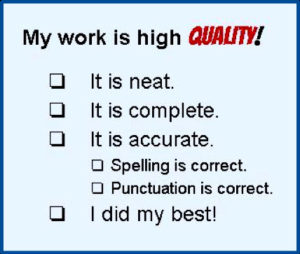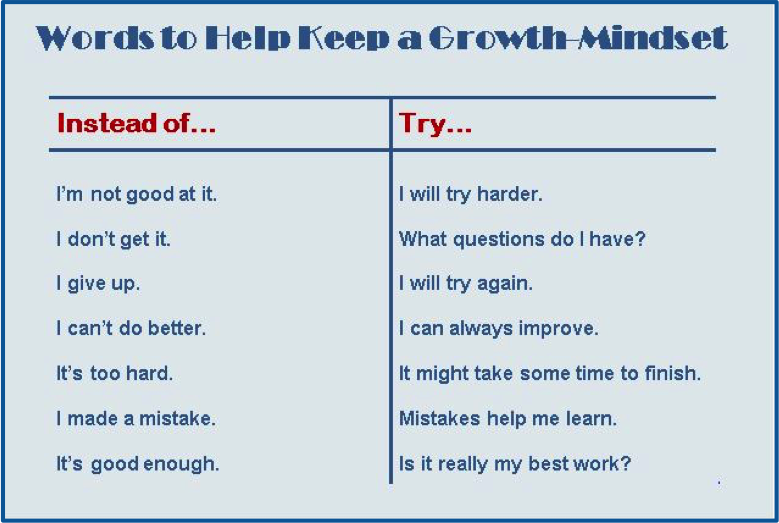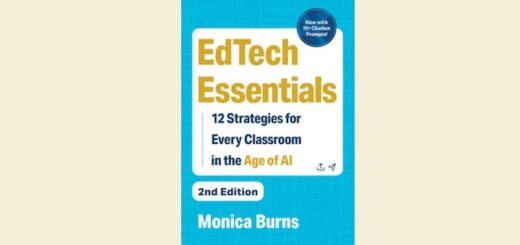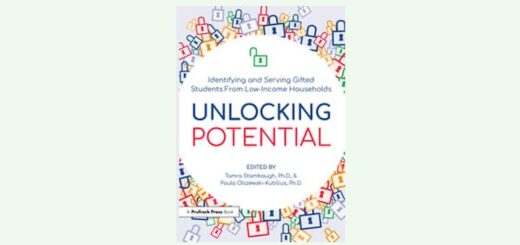Do We Care Enough to Expect Quality Work?
A MiddleWeb Blog

That’s a problem. Quality matters. Poor quality makes me think poor character. Whether or not that’s fair, it’s true.
I love my school and I love my students. I want someone who is serious enough about the job to have taken the time to send a clean application packet. Surely that is not an “out-there” perspective. I mean, most would agree: quality of work matters, right?
Then why aren’t we, as a profession, holding our students to higher standards? Why are we allowing them to turn in low quality written work?
A Growing Problem
I have been teaching for more than 20 years, and in that time I have noted a growing problem. Students are turning in work that is lower and lower in quality. Not only are penmanship, punctuation, and spelling often poor, but often students seem to rush through their assignments, and the quality of ideas, creativity, and other indicators of thoughtful work are poor too.
Don’t get me wrong, I am not complaining about “kids these days”! I love kids and they delight me daily with their insight. What I am saying is that as teachers, we have to inspire our students to do their best. I do not want the children I serve to bring error-ridden resumes to their prospective jobs. I want them to excel.
What Is Quality?

- Correct
- Neat
- Thoughtful
Some teachers argue that asking students to write neatly and spell correctly can hinder creative content. Truly, I have not seen that to be the case. And, of course, I’m not talking about requiring perfection, either. But I don’t think it’s too much to ask students to spell basic sight words correctly, use learned punctuation, and form their letters such that they can be read.
When teachers accept low quality written work, they send powerful but most certainly inadvertent messages. Imagine a teacher, we’ll call him Mr. Green, who accepts almost anything turned in, no matter how low the quality. Here are some of the messages he is sending:
- Quality doesn’t matter.
- I don’t have to do my best.
- This assignment isn’t important enough for me to work hard on it.
- Mr. Green doesn’t think I can do any better.
- Mr. Green doesn’t care about spelling, punctuation, or neatness.
These are not the messages most of us want to send. Additionally, as a teacher who expects and gets high quality work from students, I know that students can be neat, correct, thoughtful and creative all at the same time!
Inspiring Quality
Recently I read Regie Routman’s wonderful new book, Literacy Essentials. In it she writes about the importance of holding students accountable for neat handwriting (p. 248) and correct spelling (p. 240), and generally expecting students to work hard.
She wrote, “I believe one of the gravest educational injustices is how little we expect from our…students” (p. 259). That message resounded and energized me! I knew it was time to fight for high expectations for quality work from and for my students. But how?
You must unlearn what you have learned.
~Yoda

Teachers must coach for excellence, and often our students don’t share that enthusiasm for carefully completed work. They have learned to cut corners, to do less, and to be content with poor penmanship, careless spelling, and other mistakes that take away from the overall quality of the work they do.
They must unlearn what they have learned.
A colleague of mine, Mrs. Clark, who is a much-loved teacher, starts the year with a strong message about what’s to come in her class. Her message is similar to the one below.
You are going to have a lot of fun this year! You will learn and grow and challenge yourself. I love you and will help you every step of the way. But there is something you should know. I expect quality work. When you turn work in, it must be neat, correct, and thoughtful. If it’s not, you will do it again.
Never think I’m punishing you! You will redo work for me, and you will be proud of how you grow! I just know you will! You will leave my classroom feeling proud of your growth and knowing that I care very much about you.
Powerful! In another post for MiddleWeb, I wrote about “branding,” the practice of developing a unique identity for your classroom. Mrs. Clark’s brand is clearly better for students than the brand suggested by Mr. Green’s inadvertent messages.
Ideas for Supporting Quality Written Work
Through the years, I have found several high-yield strategies for supporting high quality work. I hope they prove helpful to you.
1. Teach students positive self-talk and growth mindset! If you think you can or you think you can’t, you’re probably right. I love this old saying. I share it with students and tell them even when they don’t believe in themselves, I will believe enough for both of us. I teach students about the concept of growth mindset and help them with the words they will need to talk about their potential for doing high quality work.
2. Assign less but expect more. Doing quality work takes time. I often hear teachers lament that their students don’t have the time to make all of their work neat, correct, and thoughtful or that teachers don’t have the time to have students redo work when it is low quality.
Take a look at the work you assign students and ask yourself the following questions. If the answer to one or more of them is “no,” then consider dropping the assignment or asking students to do it without handing it in. Work that is handed in should be high quality.
♦ Is the work important to my overall goals for students?
♦ Is written work the only option here?
♦ If I ask students to complete the work, is there ample time for them to do it well and to revise it if needed?
If the work will be handed in, consider allowing students to do some of it orally and some in written format. If, for example, a worksheet asks students to practice using textual evidence to support their answers to a text they read, have students write out the answers to only half of the questions.
3. Give students tools. No matter what grade you teach, students need simple tools to support them in doing quality work. I offer my students the following tools.

Spacers: I have found a large number of students do not put a space between their words. I offer them strips of cardboard that I’ve cut to be approximately an eighth of an inch wide and three inches long. Corn dog sticks also do the trick. They sit in a cup on my shelf and students use them when they need to.
Portable word walls: I give every student a copy of a folded 11×17″ paper word wall with high frequency words printed on it in alphabetical order. There is space for adding new words. When students lose them, I don’t make a big deal of it; I just point in the direction of the extra copies. But I do make a big deal when students spell simple words like because, their, what, where, or were incorrectly when they could have just used the portable word wall.
4. Collect work samples to use as anchor papers. Students need visual examples of what quality work looks like. When you get high quality work, save it, share it, maybe even post it on the wall. When students live up to the standards set by these anchor papers, celebrate with them! Have them tape the paper inside their binder as a reminder. Take a picture and post it to your school’s social media site or text it to your student’s parents. Later, if that same student offers lower quality work, show them what you know they are capable of.

6. Insist on students redoing work that is low quality. Okay, this is the hardest suggestion. Go back and reread what Mrs. Clark tells her students at the beginning of each year and then take a deep breath. Asking students to redo work is hard. Sometimes they get mad. Sometimes they cry. But it only takes redoing work once or twice for most students to realize that it’s easier to just do it right the first time.
When I find this aspect of my work hard to take, my husband (who is wiser than he is couth) says, “Embrace the suck!” What he means is that the hard parts are often the most important stops on the route to eventual success. He reminds me to celebrate the hard parts and think of them as a gift I give my students, a gift that will pay large dividends in the long run.
Working with students to revise and resubmit assignments can be exhausting and sometimes leads to weariness, but with nurturing persistence students learn our expectations and meet them, and soon the possibilities for excellence seem endless. Just ask Mrs. Clark.
Next Steps for Me (and Maybe You Too)
Next year is a big one for me. After more than two decades in the teaching trenches, I will take over as the principal of my school. I am thrilled to be able to support teachers and students in new ways, and I plan to put the expectation for high quality work at the forefront of all we do.
How? Well, in large part, that remains to be seen. But my next steps will likely include three big ideas.

2. Collecting anchor papers for most assignments. Now that we use Google Drive, keeping copies of high quality work is as easy as snapping a picture of it and dropping it in a document. The examples can be shared across grades and classrooms so that teachers and students alike develop a common vision of what quality work on a given assignment or type of assignment looks like.
3. Saving examples of high-quality work for each individual student and sharing them with their other teachers and even passing them on from grade to grade. This way it will be harder students to slide back or reduce quality when they work with new teachers or even transition to new schools.
Increasing Quality Together!
I hope I have convinced you that asking students to do and turn in quality written work is important. I also hope that you found the ideas I shared for inspiring high quality work to be helpful and practical. I will keep you posted on the journey to quality at my school, and I hope you’ll keep me posted on yours.
I’ve shared my thoughts on high expectations for quality. I would love to for you to share, too. Offer you thoughts, ideas, and concerns in the comments. Teachers, let’s learn together!






































In the section about Growth Mindset I would add if a student states ” I can’t do this!” “You can’t do it YET.” The word Yet is very powerful. I hold my 4K students to high standards when they are learning to write their letters and numbers. We practice and practice because learning to do them right and forming good habits stick. It is hard to ‘unlearn” bad habits.
I agree 100%, Penny! It is all about the power of YET!
As my mind starts to turn towards what I will do next year, this is a helpful reminder to insist on quality work from the beginning. Perhaps if I send this strong message right away and allow sufficient time for those first few assignments, I will set an important precedent for the remainder of the school year. Thanks for this reminder.
I like this so much, Lauren! There is a saying we use at my school, “Go slow to go fast!” Start slow. Start right. Fly later.
Yep! I just made some charts for next year so I can start it off right!!!
Yay! I am so happy to hear that Kel!
Rita, I say “Amen” to pretty much everything in your article. I swear I get more and more kids every year who through the first 8 years of their lives have never been told, “That’s not good enough. You can do better. Let’s do it again.” And it doesn’t harm them to be told that. They respond and do get better and what they are producing. Kids are kids are kids and I love teaching them. But especially at the younger ages, they still need to be led and they need to be held accountable for the quality of their work. High expectations are absolutely a key to learning. Our students CAN do it! Again, great article!
Thank you, Scott! Now, let’s work together to gently convince our colleagues…
Rita,
I just finished a course with you through PDI and you led me to your blog. I agree with everything you have said regarding quality. Love the idea of “branding” yourself as a teacher. Being a teacher known to expect quality and growth goes a long way. For parents who might be upset that their child is upset about redoing an assignment your words about how this can only help your child grow versus a punishment are excellent. Love the idea of anchor papers, simple tools, and portable word walls.
I’m so glad you enjoyed it, Janis!
Rita, you have said so eloquently what I have been trying to say for years: the most beneficial thing we can do for our students is to expect great things from them! Though I am near the end of my career now, I am never too tired to do this hard work!
Lori